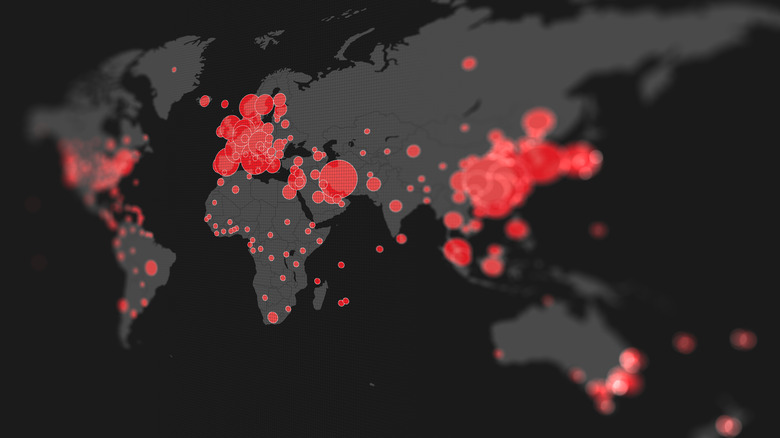Former CDC Director Reveals The Three Steps To Curbing The Current COVID-19 Surge
The United States is experiencing a COVID-19 surge, with new cases exceeding an average of 100,000 per day, according to the Centers for Disease Prevention and Control. On top of that, it is just a few weeks before the start of the flu season, and we still don't know much about the newly-discovered Omicron variant of COVID-19. While this seems like a recipe for a tough winter, there are ways we can control the current COVID-19 surge.
At least that's what Dr. Tom Frieden, former director of the CDC, thinks. In an article he wrote for CNN, he vowed not to "sugar-coat what's coming" in the near future. "Even without Omicron, the U.S. would be facing difficult months ahead. It's shaping up to be a hard winter," he explained. However, that doesn't mean we're left without hope. Frieden laid out three steps we can take to curb the surge: "learn quickly, communicate well, and act effectively."
Additional precautions
According to former CDC director Dr. Tom Frieden, the first step everyone needs to take is to get their vaccinations and booster shots. He added that at the present time, vaccines are our "best hope" for preventing more variants of COVID-19.
The second step to curb a surge, according to Frieden, is to continue wearing masks. This is especially important for those who are living with older people or anyone who has compromised immune systems. Frieden noted that masks, including N95s, should be available for all at reasonable prices. He said the third step we can take to help stop the spread of COVID-19 is to ramp up safety precautions during a surge in your community. This means limiting gatherings and visits to bars or restaurants when cases in your area are high.
You should continue to practice the same safety protocols you have been since the pandemic began. That includes washing your hands frequently with soap and water, keeping a safe distance from others when out in public, coughing or sneezing into your elbow when you're not wearing a mask, and avoiding close contact in large crowds, per the World Health Organization.


